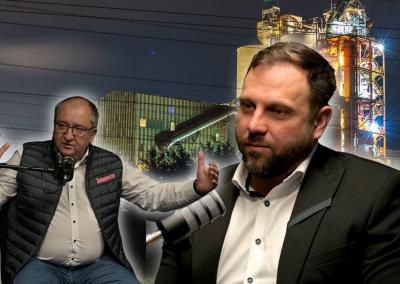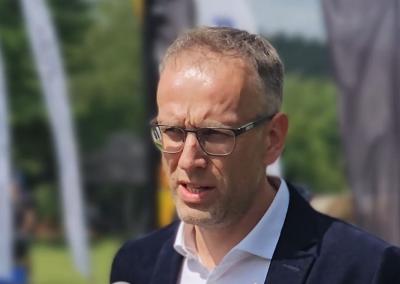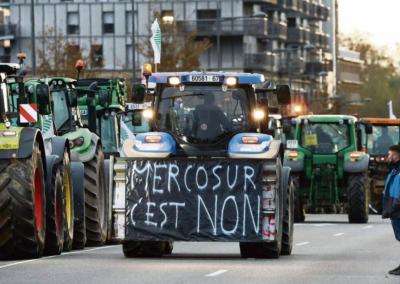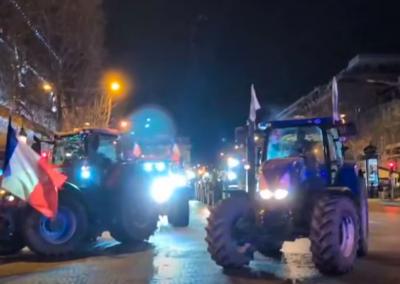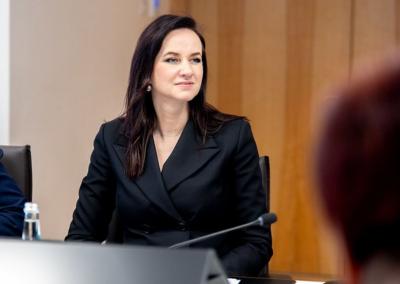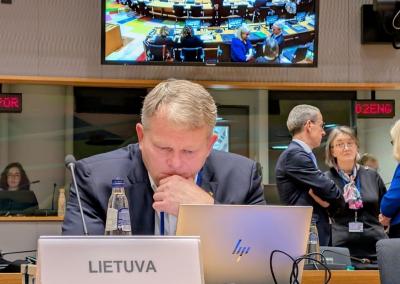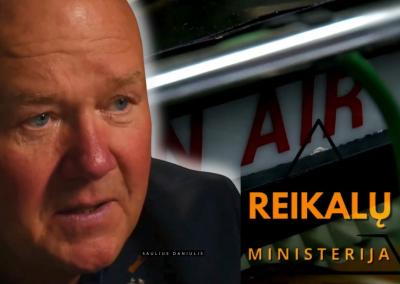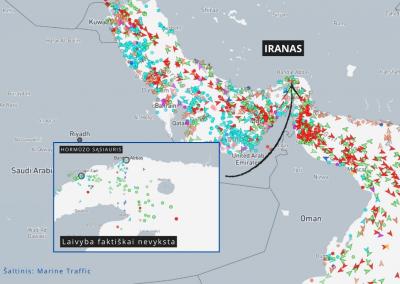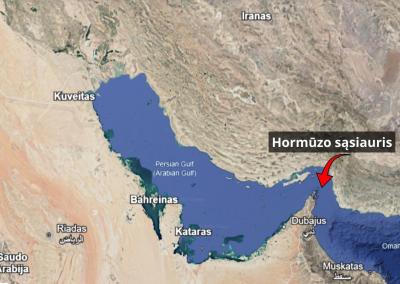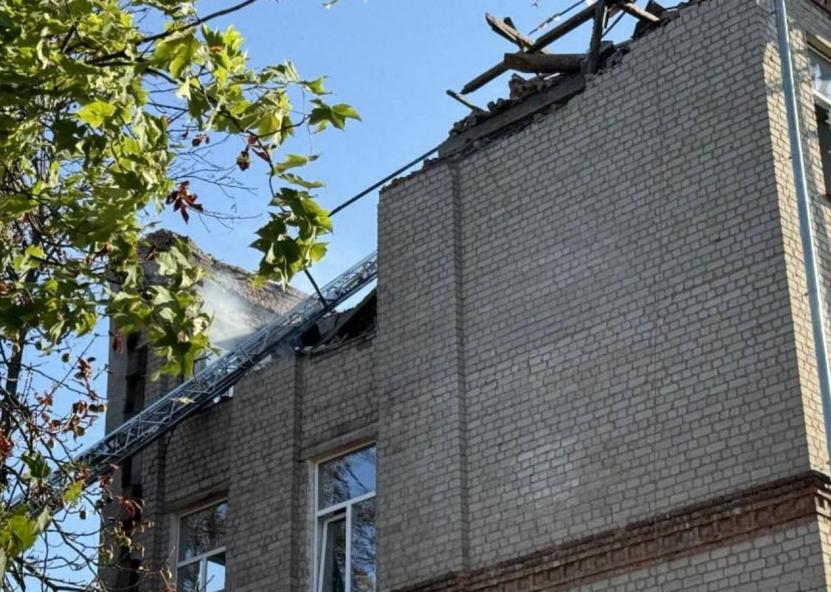Ukrainians who have found refuge in Central Europe promise to stay: the situation in Lithuania is completely different
According to the data of the Ministry of Social Security and Labour (SOCMIN), 41% of war refugees from Ukraine see their life in Lithuania until the end of the war, 39% say that they will stay in Lithuania for a few more years, but are planning to go back home. The situation in Central Europe is the opposite. In Austria, for example, more than half of Ukrainians say they would like to stay permanently. Experts call this phenomenon turbo integration.
In Austria, almost 55% of newcomers plan to stay permanently, according to „Der Standard“. The vast majority of them have learnt German and have adapted to living conditions extremely quickly. According to the Centre for Oriental Studies, 44% of Ukrainians plan to stay in Germany after the war. More than 70% are employed, 18% are in temporary jobs, and most of those without a job hope to find one within a year. In the Czech Republic, the number of those wishing to return to Ukraine is also decreasing significantly. While 75% of refugees planned to return in 2022, last year's statistics show that only 50% of refugees want to return. The similarity between Czech and Ukrainian means that there is no language barrier, which, as the website „Denik Referendum“ writes, creates even more favourable conditions for integration.
Working, but attracting public criticismSince the beginning of the war, around 90 000 Ukrainian war refugees have found refuge in Lithuania. According to the Employment Service's data for September 2024, almost 35 000 people who arrived from Ukraine are working. A much smaller number - 2 586 - do not have a job yet. Most Ukrainians are in medium- and low-skilled positions. However, SOCMIN observes that despite Ukrainians' efforts to integrate into society, there is scepticism.
„Stigma and stereotypes towards foreigners prevail in Lithuania. There is fear of competition in the labour market, doubts about national security, and rumours influence public opinion. In November 2021, 60% of Lithuanians saw immigration as more of a problem than an opportunity. The EU average on this issue is almost half as high at 32%. In the same survey, 76% of Lithuanians said they had never interacted with a migrant. This means that people form their image of migrants from the media and social beliefs, rather than from personal experience," says SOCMIN.
Representatives of various organisations working on the integration of Ukrainians also speak about the problems of public attitudes. In the opinion of Vaidos Kasulaitienė-Matusevičiūtė, Humanitarian Aid Coordinator at Lithuanian Caritas, there is a lack of support and understanding in our country. If the situation were to change, the people would feel welcome and would become part of our society: they would work, live and pay taxes to the Lithuanian budget.„What could we do better to facilitate the integration of people displaced by war? First of all, support, not judge. Understand that the ongoing war makes the situation of all these people particularly vulnerable. Not to rush to judgement if something goes wrong. It does not cost anything to smile at a person, to be happy for Ukrainian children, teenagers, who are also having a hard time with the war going on at home, with dads, uncles, brothers at the front, and if not, – not being able to visit them. Or never will. Many people have experienced painful personal losses“, – reveals to Elta.
Language barrier still a serious challenge to integration
Ukrainian refugees react to the language challenges in Lithuania in two ways: on the one hand, they feel a responsibility to learn the language for faster adaptation; on the other hand, in our country it is easy to speak Russian, which is also spoken by the majority of the newcomers, and this reduces the motivation for some Ukrainians to learn the difficult Lithuanian language. Nevertheless, it is noticeable that newcomers are actively seeking Lithuanian language courses, and according to SOCMIN data, almost 46% of Ukrainian war refugees in Lithuania identified the availability of Lithuanian language courses as one of their most pressing problems.
In the first half of 2024, almost 3,000 Ukrainians attended Lithuanian language courses organised by the Employment Service. The Refugee Reception Centre also provides intensive Lithuanian language training and Lithuanian culture awareness courses for adults for at least 96 hours. The municipalities hosting the refugees are also trying to provide conditions for learning Lithuanian. In their municipalities, 1,507 people from Ukraine have been learning Lithuanian at levels A1 and A2 as part of an ongoing programme.A representative of Caritas tells Elta that Ukrainians who have already found jobs are having difficulties in continuing to learn our language.
„In Lithuania, there are opportunities to learn Lithuanian for free, but the timing of lessons is not always convenient for working people. Often, after completing one or another level of the language, people still don't speak Lithuanian because of a lack of language practice. That's why Caritas tries to bring people together and help them develop their spoken Lithuanian language skills through activities wherever possible," she says.
According to her, Ukrainians are well aware that knowledge of the local language softens the attitude of Lithuanians towards newcomers, but mutual understanding is necessary.
„If people are learning Lithuanian, it is good to see progress and encourage them. As one of our Ukrainian volunteers told us, she has found her own way to „unlock“ Lithuanian hearts so that they don't close when speaking Russian. When she learned how to say hello, how to introduce herself, how she is from Ukraine and how she is learning Lithuanian, but doesn't yet speak it as well as she would like to, she was welcomed very well everywhere," says V. Kasulaitienė-Matusevičiūtė.
This content was produced by Delfi, which is part of the PULSE Europe initiative, which supports international cooperation between journalists. This article was contributed by Kim Son Hoang of the Austrian news portal „Der Standard“ and Petr Jedlička of the Czech news portal „Denik Referendum“.
